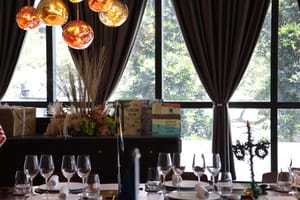IN THE SHORT period of time that I have known the Swedish Ambassador to Malaysia, Joachim Bergström, and his team at the embassy, I have been struck by their unanimous and unwavering commitment to their Swedish values: egalitarianism, inclusivity and a deep, personal obligation to environmental sustainability. In events held by the embassy that I have attended, I witnessed high-ranking officials opting to walk to locations instead of taking the car—talk about walking the talk. As his tenure comes to an end, Penang Monthly sits down with the ambassador to talk about his team’s efforts in introducing these universal values to the country, and how these can strengthen the bilateral relationship between Sweden and Malaysia.
Joachim Bergström: On Using Universal Values to Drive Diplomacy
by
Sheryl Teoh

